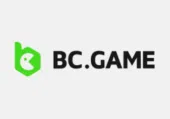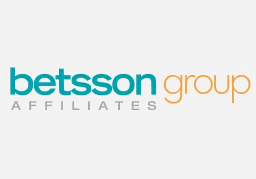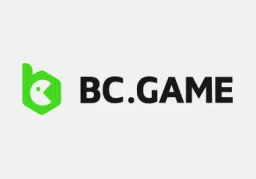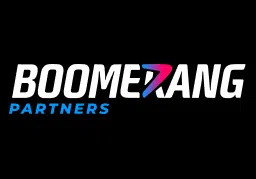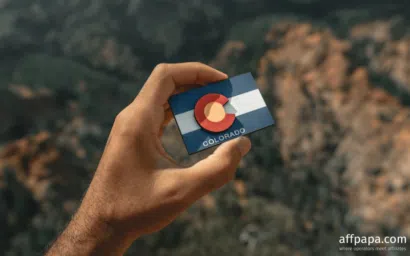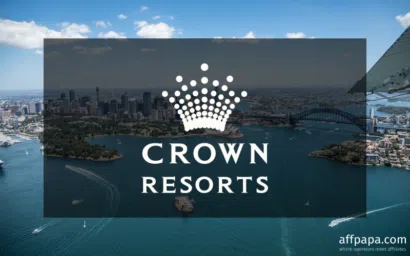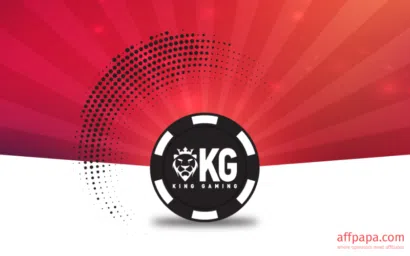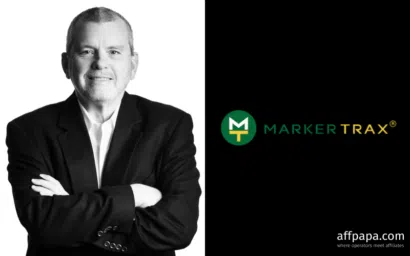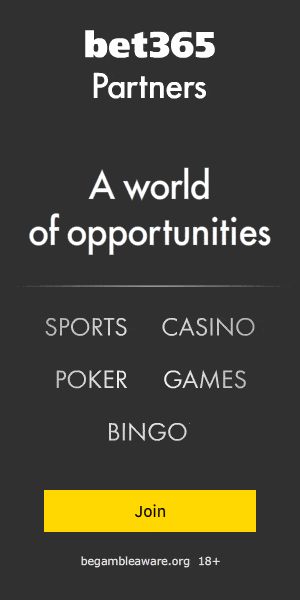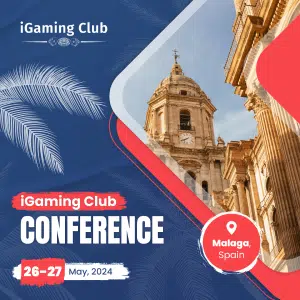5 reasons why iGaming affiliates blacklist online casinos
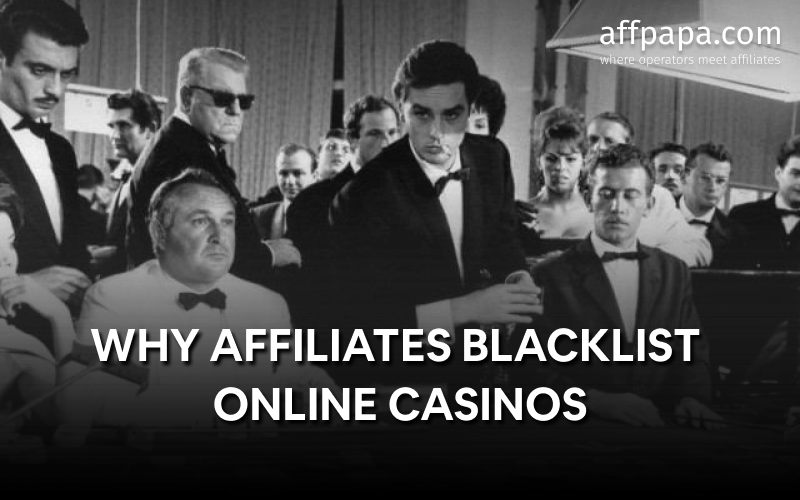
Why do iGaming affiliates blacklist online casinos? Where does the player fit in this picture, and how to have some influence over the situation as an affiliate?
An iGaming affiliate’s relationship with a casino operator is based on trust and a prior mutual agreement, in which when the conditions are met, both parties benefit significantly, not only monetarily, but also in terms of gaining a solid reputation and brand exposure among the online gambling industry.
In a perfect scenario, the affiliate joins a casino affiliate program, generates high-quality traffic, receives the agreed-upon commission, and maintains a solid connection with the program’s affiliate managers. When we snap out of this and search Google for “blacklisted online casinos,” we find tons of articles and sites dedicated to online casino scams, and operators being deceptive to both their partners and their players.
While iGaming affiliate fraud is much more prevalent in the industry, operators can act in malicious and illegitimate ways as well. This will include everything from delaying partners’ payments to paying them less than what was agreed upon in the contract or even not paying affiliates at all. Because of this, it is important for all iGaming firms to learn how to protect themselves from fraud of any variety.
In today’s article, we’ll look at why affiliates blacklist online casinos and everything in between, addressing a few of the deepest concerns in the affiliate marketing sector.
Table of Contents
Why do iGaming affiliates blacklist casinos?
To have a decent understanding of the situation and the challenges that players and affiliates face, let us look at some of the key reasons we discovered most affiliates blacklist online casinos:
1. Game and software manipulation
A strong assortment of games, cutting-edge software, and a pleasant user experience are all necessary for any reputable casino. When this is not accomplished over a lengthy period of time and in a lot of cases, then something is definitely not happening in the player’s favor. Fraudulent casinos defraud their players by manipulating the games in such a way that they end up changing things to their favor, such as unsatisfactorily freezing the game without notice and leading the player to lose. To be considered fair, all games must be randomized.
2. Poor affiliate management
Almost all casinos and affiliate programs provide dedicated customer support and proper affiliate management to assist players and affiliates with any problems they may have. Many fraudulent casinos do not provide this service adequately, which results in a complete failure to handle concerns. An inattentive customer service department that has not responded in a long time or attempts to avoid dealing with the issue is frequently a primary reason why an affiliate may put the casino on its blacklist.
Additionally, having subpar communications with affiliates is detrimental to prospecting partners that wish to enter collaborations with custom commission deals, such as through a hybrid or a fixed fee model. To facilitate such deals, an online casino will need to be able to adequately negotiate with affiliates to provide a variety of options, which will be a challenge for lower-quality firms that feature lacking affiliate management teams.
3. Online casino withdrawal problems
Another major reason why affiliates blacklist online casinos is because of online casino withdrawal problems or online casinos not paying out to their players at all. Rogue casinos will use many excuses to postpone payment, then pay only partially or not at all. Of course, there may be genuine grounds for not paying a player, such as the player having cheated or manipulated the game in some way, but casinos that fail to offer reasonable justification and proof that the player has been dishonest fall into the “list of online casinos to avoid.”
Moreover, these withdrawal challenges can sometimes also extend to a fraudulent casino’s affiliate partners, as many lower-quality operators can often refuse to pay their partners for a variety of false or made-up reasons. These companies often also cut all communications with their targeted iGaming affiliates to avoid paying for the latter’s services, which is a tactic closely related to our last point of discussion. Operators utilizing these types of fraudulent techniques will usually immediately get blacklisted by their targeted iGaming affiliates.
4. Changing terms constantly
Imagine playing chess with someone constantly altering the rules as you go. After the third change, you’d most likely be upset. Of course, with the expansion of any company, a few modifications are usually essential, and the same is true for online casinos. However, this should not involve big changes that establish a habit of doing it all the time. One of the most sneakiest things fraudulent casinos do is modify their terms and conditions on the fly to benefit them in a certain scenario, such as a disagreement with a player or an affiliate, to back up their statements. When terrible customer service is combined, an online casino is ready to get blacklisted.
Moreover, some casinos approach this differently by introducing new KPIs or modifying their affiliate commission agreements for already-delivered traffic. Fraudulent gambling businesses of course do this to reduce their expenses, particularly after an affiliate delivers standout performance for which the operator would have to pay accordingly. iGaming affiliates should be wary of these types of businesses to protect themselves from scams.
5. Hidden fees
Closely tied with our last point, hidden fees can be a major part of a fraudulent operator’s business model. Hidden fees usually involve undisclosed fees for various auxiliary services, such as customer support. Fraudulent casinos also often add various mandatory charges, usually under the guise of training, initialization, or management fees, that enable them to advertise much better offers for their partners. While some fees may be necessary in some cases, most reputable operators will clearly disclose them to avoid any confusion for their affiliate partners.
To ensure we get first-hand insight, we sat down with BTCGOSU, an affiliate hub and independent guide to crypto gambling, that pays great attention to exposing the crypto casinos that have been dishonest to them. Below, a rundown gets presented about how the affiliate site deals with operators and what gambling brands must do to find themselves blackballed by the established review hub.
Reasons why BTCGOSU blacklists operators
Naturally, there are a whole host of reasons why a casino/sportsbook can fall out of favor with BTCGOSU. It is impossible to list every possible scenario as companies can get creative regarding breaking predetermined rules, and each player can have a uniquely unfortunate experience with a site. Accordingly, each filed report to BTCGOSU gets examined on a case-by-case basis.
Some primary reasons for inclusion on the GOSU Bitcoin Casino Blacklist include:
- game manipulation
- withholding of withdrawals
- deceitful marketing tactics
- and poor affiliate management
When it comes to the latter issue, the retroactive changing of pre-agreed-upon affiliate terms is a common cause.
So, the BTCOSU online casino blacklist page is a compilation of crypto gambling websites that have done this review hub and its players wrong. It is up to the BTCGOSU’s staff’s sole discretion who will make the cut, but reasons and evidence for their black-balling get transparently listed on the said page, so everyone is clear why they are on there.
Is there a negotiation stage before eventual blacklisting?
Of course. BTCGOSU is an affiliate website, and it lives off commission. That is a fact that this site does not hide. It has a dedicated Affiliate Disclosure page, outlining that it gets paid by casinos for referrals. Consequently, it is in BTCGOSU’s best interest to list as many reputable brands as possible, as the more affiliate links there are on the website, the more money-making potential it has. Nevertheless, that cannot be so at the cost of its reputation, which is one of its main selling points.
When an accusation gets levied against a reviewed operator, BTCGOSU’s management team reaches out to the accused party and asks to hear their side of things. It can take weeks of back-and-forth to establish a deal, and if no agreement is reached, the two entities’ relations are cut, and the mentioned operators get blacklisted.
The process of ending partnerships on account of player dissatisfaction is similar. No operator gets shunned after someone makes only a claim. They must provide evidence, and the accused site gets a chance to present counterarguments, along with proof backing their version of events.
Do blacklisted online casinos get a second chance?
Possibly. If there is a confirmation of guilt, and show a mending of their ways. Are back on track to serving players’ interests, following contracted terms. That said, once a quarrel goes public, it is hard to fix broken fences, as word-of-mouth quickly travels, and it is almost impossible to erase any controversy on the internet. That is why it is not a good look to reinstate banned sites.

BTCGOSU has a strict anti-scammer policy. If it gets proven that an operator willingly participated in tricking users, it will never get promoted again. Or at least, for years. With respect to affiliate fee bickering, a settlement may be feasible if the party shows good faith and promises to follow the contract. Before striking any agreement, BTCGOSU sends operators a Media Kit with detailed information about the site’s project, its goals, and listing criteria. These are not binding from a legal perspective. But they act as terms laid out before a handshake-like agreement is reached. At the time of writing, BTCGOSU does not offer affiliate partners legal contracts. Although, that is something that may become common for this hub going forward.
The regulatory state of the crypto sphere
It is not terrific. Around 90% of all crypto gaming operators have a Curacao-based license, chiefly from Antillephone N.V. Industry insiders know that gambling companies opt to get this regulator’s seal of approval on account of its lax licensing criteria and fees. Additionally, the Caribbean nation of Curacao is the ideal home for gaming entities as it gets said that it was intentionally built from the bottom up as a lucrative tax haven, featuring corporate tax rates that go down to 0%. Those are only available if the income generated stems from outside of Curacao’s borders.
Yes, Curacao’s four master licensed holders have been active in this industry for years, with two appearing quickly after the birth of the sector. Nonetheless, these operator measures pale when put up against those from stringent European country-specific bodies like the UK Gambling Commission (UKGC) and the Swedish Gambling Authority (SGA).
The UKGC made cryptos a fiat money equivalent in 2016, and it imposes strict game technical standards, mandating all operators implement the organization’s obligatory self-exclusion scheme and incorporate various player safety measures. Curacao-approved sites do not have such restrictions in place. That is why they still have auto-play, high max bet limits, and far more games than any UKGC-licensed platform.
The comparison between Curacao casinos and UKGC ones serves to illustrate the divide between crypto gaming/betting websites and those licensed and overseen by specific countries’ distinct regulatory bodies.
BTCGOSU provides credible reviews to its readers, with the aim of building a long-lasting relationship with them based on trust. The affiliate also shares industry news, delivers exclusive bonuses, and offers detailed how-to gambling guides. It is a varied outlet for all things crypto gambling-related.
Now that we’ve addressed some of the major issues of online gambling scams, let’s take a look at how to prevent a casino scam and what to consider when signing a contract with a potential operator partner, as curated by the AffPapa team.
How to avoid online casino scams?

No matter how serious the problem with online casino scams is, we can’t avoid casinos altogether, can we? Although there are several blacklisted casinos and online gambling scams, there are also a handful of reputable iGaming operators who have proven to be excellent partners throughout the years that seek to establish long-term ties.
As an affiliate, there are a few things you can do to help avoid a casino scam and have some power over the situation, and our AffPapa team has compiled some of the most important guidelines for you!
Examine the popular online casino scams
As inventive as online casinos might be with their fraudulent activities, the procedures tend to follow a pattern. We discussed some of the most popular casino scams above, but you can also read our article on four ways operators swindle affiliates to get a better picture of what to avoid. Knowing some of the more common issues might help you recognize the operator you should avoid at all costs.
Check licensing and certifications
Every credible online casino should have a license from a regulator, who oversees the casinos they authorize. Where does the casino have its license? Who is responsible for granting the casino’s license? Is there a method to check it other than the operator’s website? These are the questions you should have answers to before proceeding on. Online casinos typically display a logo or other type of information indicating the license under which they operate. However, you should not be satisfied with this alone, since many operators may simply paste a logo on their website without truly owning one. Check the regulator’s website to ensure that the casino’s license was authorized by them in the first place.
Additionally, another thing that can hint at an operator’s legitimacy is various certifications. These certifications are usually issued to gambling companies by specialized laboratories and usually gauge the fairness and trustworthiness of an operator’s gambling offerings and closely tied backend systems. Gambling firms that go to the trouble of obtaining additional certifications for their businesses from reputable gambling laboratories are less likely to try to expand their revenue streams through questionable practices, and will probably not appear on any lists of blacklisted online casinos.
Read the terms and conditions
Let’s be honest: how many times have we skipped the lengthy process of reading the terms and conditions in favor of simply clicking “I accept” without really reading them? This is acceptable when you’re creating a new social media account, but not when you’re signing a contract with a possible casino partner. Always read the fine print and keep an eye out for any policy changes later on in the partnership to ensure you are up to speed.
Many operators utilize questionable terms to maximize their yields, with some of the most popular tactics including hidden fees, which we covered a bit ago, and timed ownership deals. The latter is used by some operators to limit how much money they will have to pay to their partners over the longer term, however, many lower-quality companies may implement timeouts that effectively eliminate most of the benefits of performance-based commission models used throughout the industry.
In addition to carefully examining a prospecting partner’s terms and conditions, it is important to ensure that you have no unresolved queries or questions. This leads us to our next point…
Pay close attention to customer service
When you join a casino affiliate program, you are generally assigned an affiliate manager who will walk you through the whole process and answer all of your burning questions. Some operators either neglect or are indifferent to proper casino affiliate management. If the operator’s customer support isn’t serving you fairly before you register for the website, it’s unlikely that it will when you sign the contract.
Examine responsiveness, language, clarifications, and your overall experience. Check to see if the affiliate managers provide the materials you require, such as promotional banners and statistics. You cannot have a good operator-affiliate relationship unless you communicate effectively.
Furthermore, it is also important to assess the quality of the customer support offered by prospecting online casino partners to their players. Lower-quality gambling websites that treat their players unfairly are unlikely to provide affiliates with a high-quality experience, especially in the long-term future. Additionally, an appropriate support service offered to players is particularly important for affiliates that have smaller yet loyal reader bases.
Research as much as you can
 Many of the drawbacks may become apparent after you begin working with the online casino, so do as much research as you can before. Go to Google, enter in the casino’s name, and read all the reviews you can find, whether they are from fellow affiliates or players. Of course, what you see on those websites may not always be entirely accurate, but it will give you a general idea and guide you in your further steps.
Many of the drawbacks may become apparent after you begin working with the online casino, so do as much research as you can before. Go to Google, enter in the casino’s name, and read all the reviews you can find, whether they are from fellow affiliates or players. Of course, what you see on those websites may not always be entirely accurate, but it will give you a general idea and guide you in your further steps.
Look for blacklisted casinos on different websites, and examine the operator’s offerings; are they reasonable or too good to be true? Check the software that the casino uses, the payment methods, and whether or not there are any online casino withdrawal problems attached to it.
In conclusion…
With new companies joining the industry every year, each with its unique set of services and strategies, the online gambling industry, like any other, is not guaranteed to be perfect. Having said that, being wary of any fraudulent activity is vital. With so many sneaky tactics used by operators to scam their affiliate partners, identifying and being aware of the risks can assist protect both the affiliate and the player in the long run.
Make sure to check out our complaints page, where casino and sportsbook operators and affiliates can report mutual misunderstandings and find solutions together.



